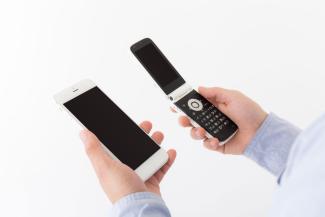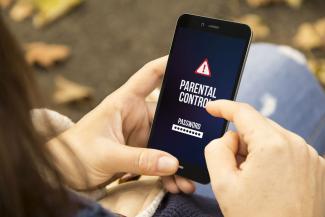Choosing your child’s first phone or deciding when to get them their first phone, can be a daunting decision. On one hand, having a phone helps you stay connected with your child and can be incredibly convenient. However, you also face concerns about safety, screen time, and appropriate usage. As a parent, finding the right balance is essential and finding the right phone for you child can help alleviate some of those worries. At Cellcom, we have dozens of different phones to choose from. Everything from basic flip phones to smartphones with the latest features. We are here to help guide you through the process of choosing your child’s first phone.
There are a few different factors to consider when selecting your child’s first phone.



